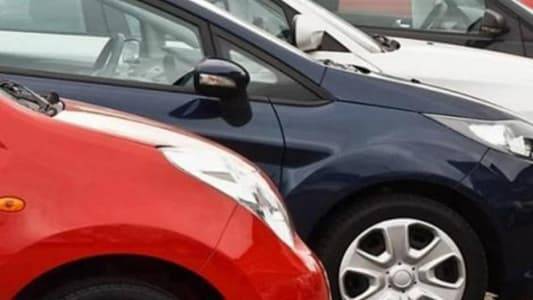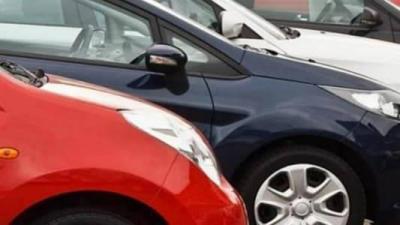Instead of reducing the fees on cars while raising the customs dollar price and calculating the value-added tax (VAT) at a rate of 15,000 LBP instead of 1,500 LBP, the fees for importers increased significantly, impacting citizens. This situation is likely to make it impossible for the middle or low-income class in Lebanon to purchase a car. The customs duties and VAT on a car valued at $10,000 increased from 7,200,000 LBP to 94,200,000 LBP, as explained to "Nidaa Al-Watan" by Eli Qazzi, head of the Syndicate of Used Car Importers, an increase of 87 million LBP.
A simple calculation shows that when calculated in dollars, the fees have increased from $4,800 (based on an exchange rate of 1,500 LBP per dollar) to $6,280 (based on an exchange rate of 15,000 LBP per dollar) or $2,297 if calculated at an exchange rate of 41,000 LBP. For a car priced at $20,000, the fees increased from 14,500,000 LBP (equal to $9,666 at a rate of 1,500 LBP) to 193,950,000 LBP (equal to $12,930 at a rate of 15,000 LBP including VAT). Meanwhile, the fees for a car priced at $100,000 rose from 94,700,000 LBP (equal to $63,133 based on 1,500 LBP) to 992,000,000 LBP (equal to $66,133 based on 15,000 LBP). This substantial increase in fees has categorized Lebanon as one of the highest in the world, as noted by Walid Francis, head of the Syndicate of Used Car Showrooms, who stated that consumers in other countries pay a 5% customs fee, whereas in Lebanon, they pay 50% plus an additional 11%, making it a total of 61% fees to the state on every car, excluding registration fees.
Regarding the details of the fee calculation, customs broker Tarek Shams Pasha explained to "Nidaa Al-Watan" how it is calculated at the port. He stated that it was determined based on the car's price divided into sections:
1. For cars priced from 0 to 20 million LBP, the importer must pay a unified customs fee of 5% plus a 45% local consumption fee, and VAT of 11% is applied on the total amount.
2. For cars priced over 20 million LBP, a unified customs fee of 5% and a 45% local consumption fee is applied, and the VAT is added to the total amount.
Additionally, a fee of 3% is added to both sections as an insurance fee plus VAT (i.e., if the car price is $10,000, the fee would be $300 plus VAT, totaling $333).
Due to the difficulty in importing cars valued under 20 million LBP (approximately $13,600 at an exchange rate of 1,500 LBP per dollar), there are calls for adjusting these thresholds to, for example, range from 0 to 100 million LBP. It has been suggested that the new version of the Nada guide should be adopted to evaluate the car's price based on its manufacturing year, which typically decreases in value by about $1,000 annually.
Given the impact of these excessive fees on the middle and low-income classes, which will hinder their ability to buy used cars, the futures of used car showrooms and importers are in jeopardy. Warning of the catastrophic implications of the customs and VAT fees, the General Confederation of Lebanese Labor held a press conference titled "The Catastrophe of the Customs Dollar on the Imported Used Car Sector and the Ability of Lebanese Citizens to Secure Their Right to Transportation." During this conference, the Syndicate of Car Showroom Owners announced that a warning protest would take place today at noon, as well as a sit-in in front of the Port of Beirut. If there is no response from the officials regarding their demands, a strike by car showrooms across Lebanon and the closure of all roads adjacent to the showrooms will be implemented 48 hours after the sit-in.




